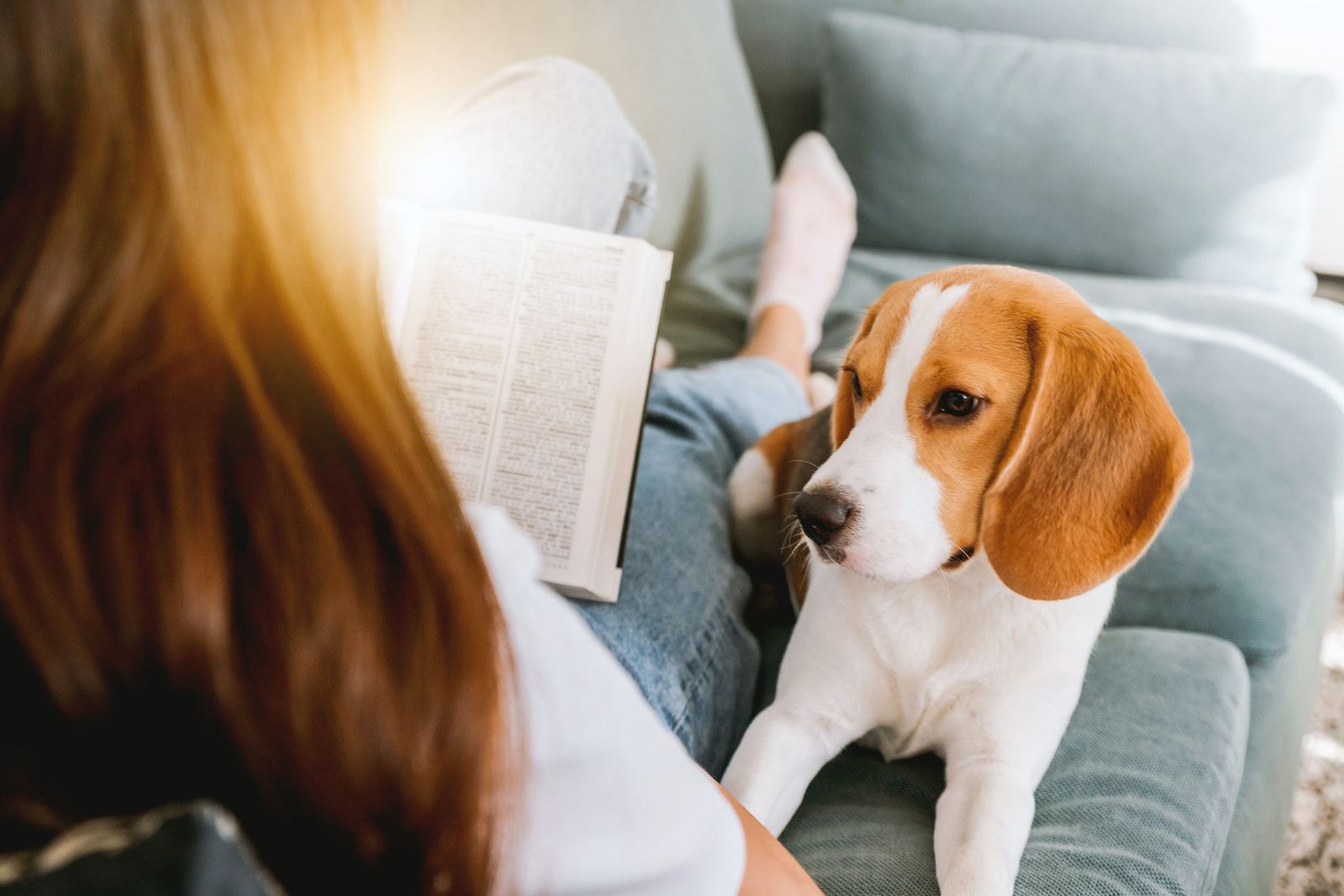Adjusting your back-to-school routine for happy pets

Going back to school can be an emotional time for both humans and their pets. While your pet may not have the pressure of arriving on time or getting a good score on a test, animals can experience stress any time their routine is changed. With their humans suddenly absent for longer periods of time, our furry friends need some time to cope with that change. It’s normal for pets to feel anxious from time to time, especially when their routine or environment changes. Even caged pets such as rabbits, gerbils, geckos, and snakes can react to changes in their normal routine. Fortunately, there are steps you can take to help your pet adjust to this change more quickly.
With dogs in particular, it’s important to understand the difference between their normal, temporary feelings of being stressed and a medical disorder like separation anxiety. If you’re seeing signs that your dog is panicking while home alone and the situation doesn’t improve within a few days, it’s time to talk to a veterinarian about the possibility of separation anxiety. Panic attacks leave evidence like toileting accidents, broken blinds or windows, and chewed door frames and drywall. Injuries like broken toenails and teeth are also common.
Reducing stress and separation anxiety in pets
Different pets may require different methods of soothing in your absence. Some generally helpful distractions for anxious pets include:
- Exercise
- Mental stimulation, like puzzles or games
- Food
- Atmosphere
When leaving your pets alone at home without supervision, make sure any toys or treats they have access to are safe to play with or consume. Some dogs, cats, birds and even rabbits might be soothed and distracted by the sound of a TV or a recording of your voice. Give it a try and watch your pet on a webcam to see if it helps. Toys that move on their own, such as balls, can provide additional stimulation for pets playing on their own. Cats and dogs may enjoy self-serving fountains. Feeding pets their normal food using interactive puzzle toys can keep them distracted while they work toward their goal.
If you have a reptile that requires a basking light, consider using a timer to turn the light on and off at scheduled times. Consider keeping pets enclosed in a smaller space while you are away, rather than giving them the full run of your house. Some pets may feel safer in a cozier space, and being enclosed will deter adventurous pets from getting into trouble while you’re gone. Keeping the space quiet and dark, away from potentially alarming triggers like activity outside a window, helps some pets feel calmer. Take the time to try a few different things and see what works best for your pet. If your pet does not have destructive or overly anxious behavior, it’s perfectly fine to leave them in whatever environment suits them, as long as it’s safe.
Put a new routine in place
Dogs especially are social creatures, so companionship is important to them. If you're unable to be with your dog for long periods during the day, consider taking him to doggy daycare instead. They’ll get to play and interact with other dogs, which can help distract them from your absence. Dogs need exercise and mental stimulation, so having other dogs and humans around is a good way to keep them from experiencing separation anxiety when you’re at school.
If you prefer to leave your pets at home, consider hiring a pet sitter to come in and give them some attention during the day. They can also help to keep your pets on the same meal or medication schedule that they are used to when you are changing your routine. No matter which option you choose, try to get your pets accustomed to their new walker, sitter, or daycare ahead of time so they won’t be faced with a stranger when your routine changes. Being around someone they are already familiar with can help ease them into a new situation.
Get support from an online vet
Signs of distress in pets suffering from separation anxiety can vary. While temporary stress will generally not cause serious health issues in your pet, a period of anxiety can snowball into larger problems. For example, pets who chew on cords, furniture or other items may inadvertently swallow a piece of the material, causing digestive issues or blockages. An online vet can make personalized recommendations for your pet to help them to adjust to your back-to-school routine in no time.
If you have additional concerns about changing your pet’s routine or your pet is suffering due to anxiety, book a virtual vet appointment. An online veterinarian can guide you and your pet through the back-to-school transition at a time that works best for you.




